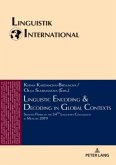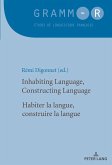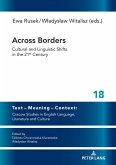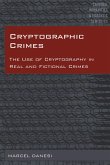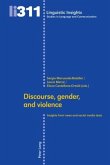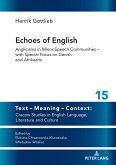Language can never be seen as separate from social phenomena. With the rise of the internet and the changes that have taken place as far as sites in which interaction occurs, new types of discourses surrounding sexual assault have emerged. As a result, victim-blaming as a discursive action has become more anonymous.
This study investigates digital comments located on news reporting websites on the subject of rape and compares American and Polish comments. The linguistic analysis of the discourse on rape and the actors involved investigates representations of victims, offenders, and the act of rape itself and questions the cultural significance of victim-blaming.
The [...] work is an excellent example of methodological triangulation. The author has decided to combine the potential of CDA and pragmatics to gain a better understanding of the ideologies revealed in the linguistic layer of the researched material and the process of their influence-through language-onthe attitudes of discourse participants. The theoretical (conceptual) and methodological "circumstances" of the relevant research have been developed extremely broadly. One could say that a reader learning about research competencies has been provided with a complete and rich set of tools, both those chosen by the author of the work and alternative ones, to consider alternative research paths.
- Professor Agnieszka Kielkiewicz-Janowiak, Adam Mickiewicz University, Poznan
This work is a highly valuable academic study that develops both a critical analysis of discourse and enriches knowledge about attitudes and evaluations of rape and its perpetrators and victims. [...] On an academic level, the work provides a comprehensive and original solution to the research problem.
- Professor Andrzej Lyda, University of Silesia in Katowice
This study investigates digital comments located on news reporting websites on the subject of rape and compares American and Polish comments. The linguistic analysis of the discourse on rape and the actors involved investigates representations of victims, offenders, and the act of rape itself and questions the cultural significance of victim-blaming.
The [...] work is an excellent example of methodological triangulation. The author has decided to combine the potential of CDA and pragmatics to gain a better understanding of the ideologies revealed in the linguistic layer of the researched material and the process of their influence-through language-onthe attitudes of discourse participants. The theoretical (conceptual) and methodological "circumstances" of the relevant research have been developed extremely broadly. One could say that a reader learning about research competencies has been provided with a complete and rich set of tools, both those chosen by the author of the work and alternative ones, to consider alternative research paths.
- Professor Agnieszka Kielkiewicz-Janowiak, Adam Mickiewicz University, Poznan
This work is a highly valuable academic study that develops both a critical analysis of discourse and enriches knowledge about attitudes and evaluations of rape and its perpetrators and victims. [...] On an academic level, the work provides a comprehensive and original solution to the research problem.
- Professor Andrzej Lyda, University of Silesia in Katowice


